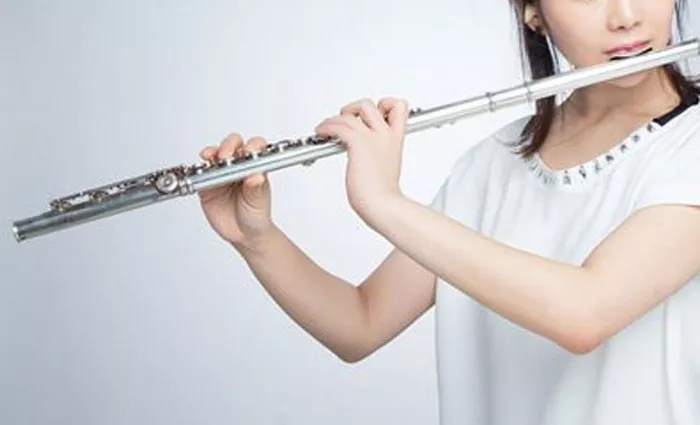Embarking on a journey to learn the flute is an exciting endeavor, but selecting the right instrument can be daunting for beginners. With a plethora of options available in the market, understanding how to choose the best flute for beginners is essential. In this article, we will explore the factors to consider when selecting a flute, delve into which flute is best suited for beginners, and provide valuable advice for practicing effectively.
Understanding How to Choose a Flute
Before diving into specific flute models, it’s crucial to understand the key factors to consider when making your selection:
Materials: Flutes can be made from various materials, including nickel silver, silver-plated, solid silver, and even gold. While silver and gold flutes offer superior tonal quality, they are more expensive. Beginners often start with nickel silver or silver-plated flutes, which offer a good balance of affordability and sound quality.
Keywork: The mechanism of the flute’s keys plays a significant role in playability. Beginners should look for flutes with a reliable key mechanism that responds smoothly to finger movements. Offset G keys and a C footjoint are often recommended for beginners, as they provide greater comfort and ease of play.
Headjoint: The headjoint, comprising the embouchure hole and lip plate, greatly influences the flute’s tone and responsiveness. Beginners should seek a headjoint with a comfortable lip plate angle and an appropriate cut, such as a beginner-friendly “standard” or “progressive” cut.
Brand Reputation: Opting for a flute from a reputable manufacturer ensures quality craftsmanship and reliable performance. Established brands like Yamaha, Gemeinhardt, and Armstrong are known for producing high-quality beginner flutes.
Budget: Consider your budget when choosing a flute. While it’s essential to invest in a quality instrument, beginners don’t necessarily need to splurge on the most expensive flute. Finding a balance between affordability and quality is key.
Which Flute Is Best for Beginners?
After considering the aforementioned factors, beginners are often recommended to start with a student or beginner flute model. These flutes are specifically designed with beginners in mind, offering features that facilitate learning and progression. Some popular beginner flute models include:
Yamaha YFL-222: The Yamaha YFL-222 is a top choice for beginners due to its excellent build quality, reliable keywork, and consistent intonation. It features an offset G key and a C footjoint, making it comfortable for novice players.
Gemeinhardt 2SP: The Gemeinhardt 2SP is another highly regarded beginner flute known for its durability and affordability. It boasts a silver-plated body and headjoint, offset G key, and a split E mechanism for improved high E response.
Armstrong 104: The Armstrong 104 is an entry-level flute that offers solid performance at an affordable price point. It features a nickel silver body, offset G key, and a C footjoint, making it suitable for beginners seeking a reliable instrument to start their musical journey.
Ultimately, the best flute for beginners is one that aligns with their budget, preferences, and playing goals. It’s essential to try out different models and seek guidance from a knowledgeable flute teacher or music store professional before making a purchase.
Advice for Practicing for Beginners
Learning to play the flute requires dedication, patience, and consistent practice. Here are some valuable tips to help beginners make the most of their practice sessions:
Establish a Routine: Set aside dedicated time each day for flute practice. Consistency is key to making progress and building proficiency on the instrument.
Warm-Up Exercises: Begin each practice session with warm-up exercises to loosen your muscles and improve tone production. Simple long tones, scales, and lip slurs are excellent warm-up exercises for flute players.
Focus on Fundamentals: Mastering the fundamentals is essential for progress. Spend time practicing basic techniques such as proper embouchure, breath support, finger dexterity, and tone production.
Break It Down: When learning new pieces or techniques, break them down into smaller, manageable segments. Focus on mastering each section individually before piecing them together.
Use a Metronome: Practicing with a metronome helps develop a steady sense of rhythm and timing. Start at a comfortable tempo and gradually increase the speed as you become more proficient.
Listen Actively: Listen to recordings of accomplished flute players to gain inspiration and insight into phrasing, tone quality, and musical interpretation.
Seek Feedback: Don’t hesitate to seek feedback from your flute teacher or peers. Constructive criticism can help identify areas for improvement and guide your practice efforts.
Stay Motivated: Set achievable goals for yourself and celebrate your progress along the way. Remember that learning the flute is a journey, and each practice session brings you one step closer to your musical aspirations.
By following these tips and staying dedicated to your practice routine, you’ll be well on your way to mastering the flute and unlocking your musical potential.
Conclusion
In conclusion, selecting the right flute for beginners involves considering factors such as materials, keywork, headjoint design, brand reputation, and budget. Beginner flutes from reputable manufacturers offer the ideal combination of affordability, playability, and quality craftsmanship. Additionally, adopting effective practice habits, such as establishing a routine, focusing on fundamentals, and seeking feedback, is essential for progress and growth as a flute player. With patience, perseverance, and a passion for music, beginners can embark on a rewarding journey of learning and exploration with the flute as their guide.


